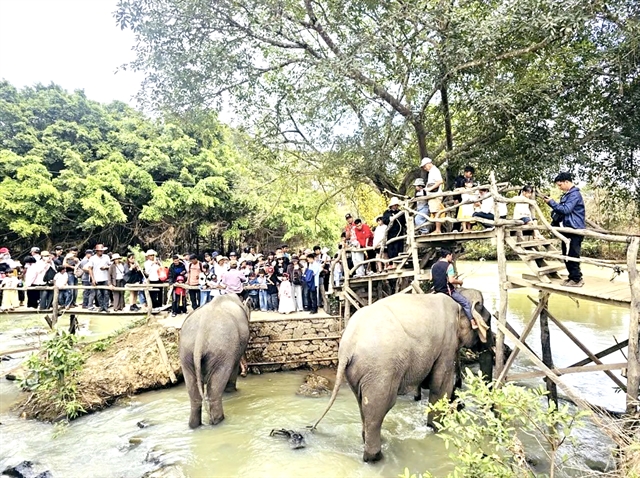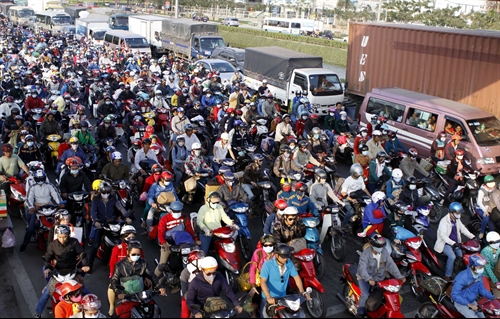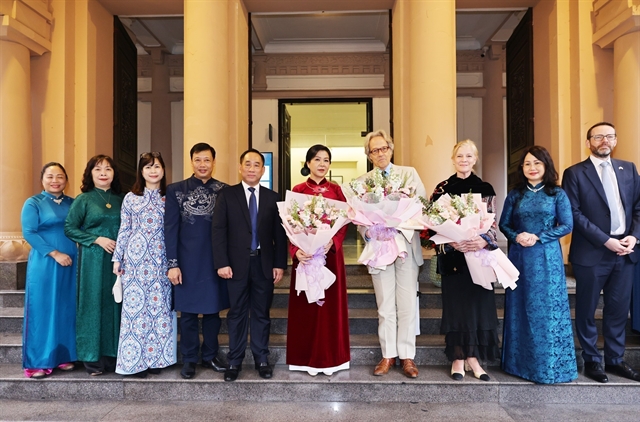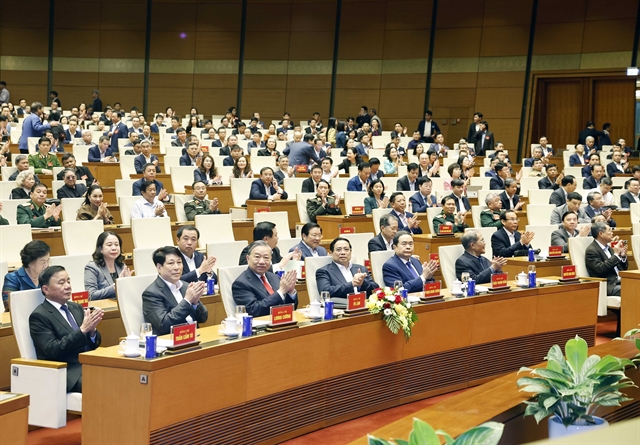 Society
Society

HCM City hopes to ease traffic jams by efficiently using existing infrastructure, promoting investment in public transport, developing waterway transportation and speeding up transportation projects, participants at a seminar said yesterday.
 |
| A traffic jam in HCM City. Experts suggested increasing violation fines and taxes on private vehicles to curb the problem. -- VNA/VNS Photo Hoàng Hải |
HCM CITY – HCM City hopes to ease traffic jams by efficiently using existing infrastructure, promoting investment in public transport, developing waterway transportation and speeding up transportation projects, participants at a seminar said on Tuesday.
“We would like to seek the best solutions for addressing the traffic situation, and this conference is a good chance for us to listen to traffic experts and researchers,” said Lê Văn Khoa, deputy chairman of the city’s People’s Committee.
The conference was organised by the Department of Transport and the International University-National University HCM City.
Deputy Minister of Transport Nguyễn Ngọc Đông said, “The most important thing to ease traffic congestion is ensuring proper master planning for urban transportation, developing huge passenger transport systems like the metro and bus rapid transit system and improving the quality of public transportation.”
Dr Võ Kim Cương, former deputy director of the municipal Planning and Architecture Department, suggested several measures, including improving the enforcement of traffic laws and educating the public about them, limiting private vehicles and rescheduling work hours.
Professor Nguyễn Văn Hiệp of the Polytechnic University said the city should sharply increase violation fines and taxes on private vehicles.
Trần Quang Lâm, deputy director of the Department of Transport, said, “Local authorities will step up patrols, set up the urban traffic management centre before 2020, use technology for traffic management and improve public transport.”
Dr Huỳnh Thế Du of the Fulbright Economic Training Programme urged the city to set up a special task force to cope with congestion.
Dr Vũ Anh Tuấn of the Việt Nam-Germany University said authorities should “reduce demand for transportation and vehicles by increasing fees and taxes and encourage new and smart means of transport”.
The city’s annual spending on transport infrastructure is considerably low at about 2 per cent of its GDP.
As of 2011, it had 3,217km of roads and 989 bridges with a combined length of 50km. – VNS




